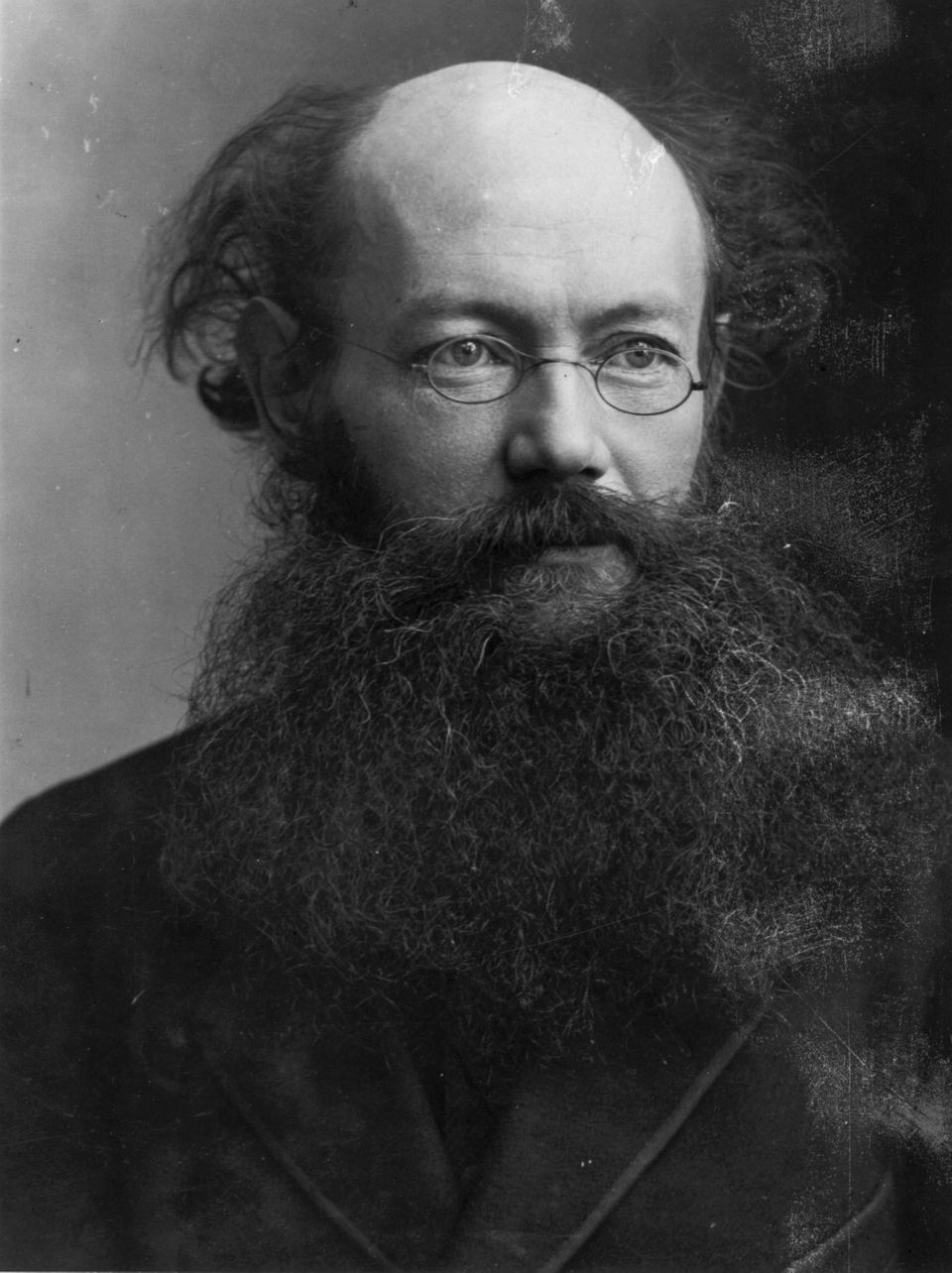Zdroj: Law and Authority (1886), I
Kontext: Men who long for freedom begin the attempt to obtain it by entreating their masters to be kind enough to protect them by modifying the laws which these masters themselves have created!
But times and tempers are changed. Rebels are everywhere to be found who no longer wish to obey the law without knowing whence it comes, what are its uses, and whither arises the obligation to submit to it, and the reverence with which it is encompassed. The rebels of our day are criticizing the very foundations of society which have hitherto been held sacred, and first and foremost amongst them that fetish, law.
The critics analyze the sources of law, and find there either a god, product of the terrors of the savage, and stupid, paltry, and malicious as the priests who vouch for its supernatural origin, or else, bloodshed, conquest by fire and sword. They study the characteristics of law, and instead of perpetual growth corresponding to that of the human race, they find its distinctive trait to be immobility, a tendency to crystallize what should be modified and developed day by day.
Piotr Alexejevič Kropotkin: Citáty v angličtine
“Indifference from this point on is impossible.”
The Spirit of Revolt (1880)
Kontext: Whoever has a slight knowledge of history and a fairly clear head knows perfectly well from the beginning that theoretical propaganda for revolution will necessarily express itself in action long before the theoreticians have decided that the moment to act has come. Nevertheless, the cautious theoreticians are angry at these madmen, they excommunicate them, they anathematize them. But the madmen win sympathy, the mass of the people secretly applaud their courage, and they find imitators. In proportion as the pioneers go to fill the jails and the penal colonies, others continue their work; acts of illegal protest, of revolt, of vengeance, multiply.
Indifference from this point on is impossible. Those who at the beginning never so much as asked what the "madmen" wanted, are compelled to think about them, to discuss their ideas, to take sides for or against. By actions which compel general attention, the new idea seeps into people's minds and wins converts. One such act may, in a few days, make more propaganda than thousands of pamphlets.
Above all, it awakens the spirit of revolt: it breeds daring. The old order, supported by the police, the magistrates, the gendarmes and the soldiers, appeared unshakable, like the old fortress of the Bastille, which also appeared impregnable to the eyes of the unarmed people gathered beneath its high walls equipped with loaded cannon. But soon it became apparent that the established order has not the force one had supposed.
Anarchist Morality http://dwardmac.pitzer.edu/anarchist_Archives/kropotkin/AM/anarchist_moralitytc.html (1890)
Kontext: The history of human thought recalls the swinging of a pendulum which takes centuries to swing. After a long period of slumber comes a moment of awakening. Then thought frees herself from the chains with which those interested — rulers, lawyers, clerics — have carefully enwound her.
She shatters the chains. She subjects to severe criticism all that has been taught her, and lays bare the emptiness of the religious political, legal, and social prejudices amid which she has vegetated. She starts research in new paths, enriches our knowledge with new discoveries, creates new sciences.
But the inveterate enemies of thought — the government, the lawgiver, and the priest — soon recover from their defeat. By degrees they gather together their scattered forces, and remodel their faith and their code of laws to adapt them to the new needs.
Anarchism: Its Philosophy and Ideal (1896)
Kontext: To begin with, if man, since his origin, has always lived in societies, the State is but one of the forms of social life, quite recent as far as regards European societies. Men lived thousands of years before the first States were constituted; Greece and Rome existed for centuries before the Macedonian and Roman Empires were built up, and for us modern Europeans the centralized States date but from the sixteenth century. It was only then, after the defeat of the free mediæval Communes had been completed that the mutual insurance company between military, judicial, landlord, and capitalist authority which we call "State," could be fully established.
Anarchism: Its Philosophy and Ideal (1896)
An Appeal to the Young (1880)
X, Closing lines
The State — Its Historic Role (1897)
Zdroj: Law and Authority (1886), I
Letter to a friend (November 1920), as quoted in Peter Kropotkin : From Prince to Rebel (1990) by George Woodcock and Ivan Avakumovic, p. 428
Speech (26 September 1891); as quoted in Peter Kropotkin : From Prince to Rebel (1990) by George Woodcock and Ivan Avakumovic, p. 269
This appeared in "The First Work of the Revolution" an article by an unidentified author in Freedom, Vol. 1, No. (11 August 1887), where another article had been written by Kropotkin.
Misattributed
"Words of a Rebel"; as quoted in The Heretic's Handbook of Quotations: Cutting Comments on Burning Issues (1992) by Charles Bufe, p. 26
Anarchism: Its Philosophy and Ideal (1896)
An Appeal to the Young (1880)
Zdroj: Law and Authority (1886), III
Anarchism: Its Philosophy and Ideal (1896)
Anarchism: Its Philosophy and Ideal (1896)
Zdroj: The State — Its Historic Role (1897), I
Zdroj: The State — Its Historic Role (1897), IX
Anarchism: Its Philosophy and Ideal (1896)
Zdroj: "Words of a Rebel"; as quoted in The Heretic's Handbook of Quotations: Cutting Comments on Burning Issues (1992) by Charles Bufe, p. 26
Anarchism: Its Philosophy and Ideal (1896)
Zdroj: Law and Authority (1886), I
As quoted in Peter Kropotkin : From Prince to Rebel (1990) by George Woodcock and Ivan Avakumovic, p. 407
Anarchism: Its Philosophy and Ideal (1896)
